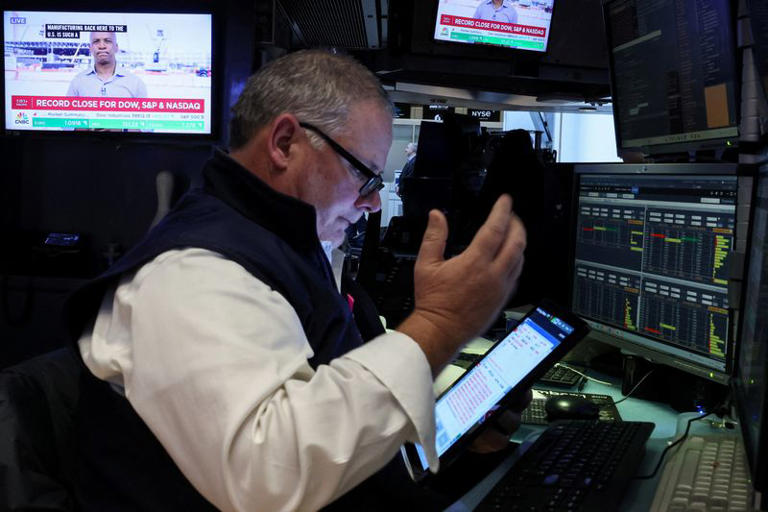On Wednesday, U.S. stocks demonstrated resilience, with the Dow leading the gains and the S&P 500 reaching a closing record high. Merck & Co emerged as the standout performer on the Dow, advancing by 4.96% after receiving approval from the U.S. Food and Drug Administration for its therapy aimed at adults suffering from a rare lung condition. This positive news propelled Merck’s stock higher and contributed to the overall bullish sentiment in the market.
The Dow Jones Industrial Average now stands tantalizingly close to the 40,000 level, a milestone that has yet to be breached. The potential breakthrough underscores the optimism prevailing in the market, buoyed by robust corporate performance and promising economic indicators.
However, gains on the tech-focused Nasdaq Composite were tempered by a 2.5% decline in shares of AI giant Nvidia, which experienced a second consecutive session of losses. Despite this setback, Nvidia’s stock remained substantially up for the year, having surged by over 80%.
Market sentiment remained largely unfazed by recent inflation data, which revealed higher-than-expected consumer and producer prices. While these figures could have raised concerns about inflationary pressures, investors appeared reassured that they would not significantly alter expectations for an anticipated rate cut by the Federal Reserve in June.
The Fed, at its recent policy meeting, maintained its outlook for three rate cuts this year, a stance reiterated by central bank officials in subsequent remarks. The upcoming release of the Personal Consumption Expenditures Price Index (PCE), the Fed’s preferred inflation metric, on Good Friday, when U.S. markets will be closed, will provide further insights into inflationary trends.
Craig Fehr, head of investment strategy at Edward Jones in St. Louis, emphasized the importance of the Fed’s cautious approach, noting that the current strength of the economy affords policymakers the flexibility to delay rate cuts. Premature rate reductions, Fehr suggested, could potentially lead to adverse outcomes, highlighting the delicate balance the Fed must strike in its monetary policy decisions amidst evolving economic conditions.
